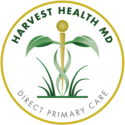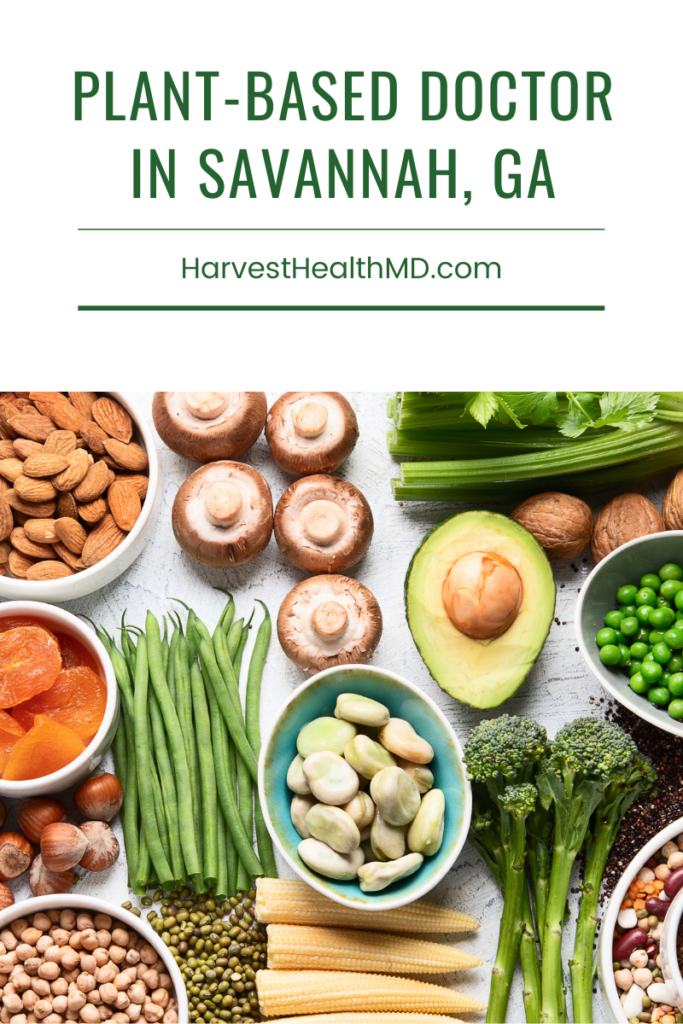Plant-Based Doctor In Savannah
An interview with Dr. Jamal Lawrence, MD on his philosophy of a plant-based lifestyle.
Interviewer: What does it mean to be plant-based?
Dr. Lawrence: “I was recently asked this question by a current patient which forced me to take a step back and to approach their education and experience from a more broad and encompassing perspective. Often we assume that people know what we know or may have similar experiences but this is often not the case and so it is my goal to help inform as many people as possible.
Following a plant-based whole-food diet essentially means eating more plants than animals with the goal of helping to prevent or reverse illness/chronic diseases. There are many different ways to go about this from being a flexitarian, vegetarian, lacto-ovo-vegetarian, or vegan. Essentially, in most cases, the focus is to minimize meat and animal product/by-product consumption and the focus on increasing consumption of fruit, vegetables, seeds, and legumes (beans) consumption.
As it stands, a plant-based whole-food diet (which I typically describe as eating more plants and animals (70/30 split) and eating foods that are as close to their raw form in nature as you can find them) is closely correlated with the prevention and reduction of cardiovascular disease and the reduction of certain cancers and metabolic conditions. While I don’t think it is a cure for everything/everyone, I do think the benefits of this lifestyle are highly underutilized by most Americans, and more particularly in the black community.”
Interviewer: How long have you been plant-based and why did you make the switch?
Dr. Lawrence: “I have been plant-based for approximately 3-years now. Initially, the goal was to push the envelope to become a healthier version of myself. This journey started in medical school as I began to learn more about the body, different disease processes, health, wellness, and nutrition.
It has been a slow process for me and has been ongoing for the last 7-years. I transitioned from a traditional meat-eater to focusing on lean meats such as chicken, turkey, and fish. I later transitioned to pescatarianism with the goal of becoming vegan which after Day 2, I decided was too restrictive (more on this another time).
Thus I settled on vegetarianism. I didn’t have any major health issues prior to starting this journey so it has been more about health progression, the pursuit of better, and aligning my actions and beliefs with the supporting medical evidence. I am big on practicing what you preach.”
Interviewer: How has being plant-based affected the way you take care of people?
Dr. Lawrence: “Knowing what I know about a plant-based diet and having aligned my own lifestyle around the very same principles, educating my patients about lifestyle adds another dimension/facet to doctoring. For the patients who are ill, we use medicine to help ameliorate some of the symptoms and signs they are experiencing.
However, for those who are healthy, we discuss lifestyle medicine concepts with a heavy slant toward nutrition and a Plant-Based Whole-Food living. At this point, I have routinely had patients prevent themselves from starting chronic medications, improve their energy levels, achieve weight-loss, and improve their health with the right personalized plan and frequent follow-up and accountability through the lifestyle medicine component of my medical practice.
At times, it seems I do more health coaching than direct medical care, but I am reminded that this is what doctoring entails when we actually have time to spend with patients.”
– Harvest Health MD

